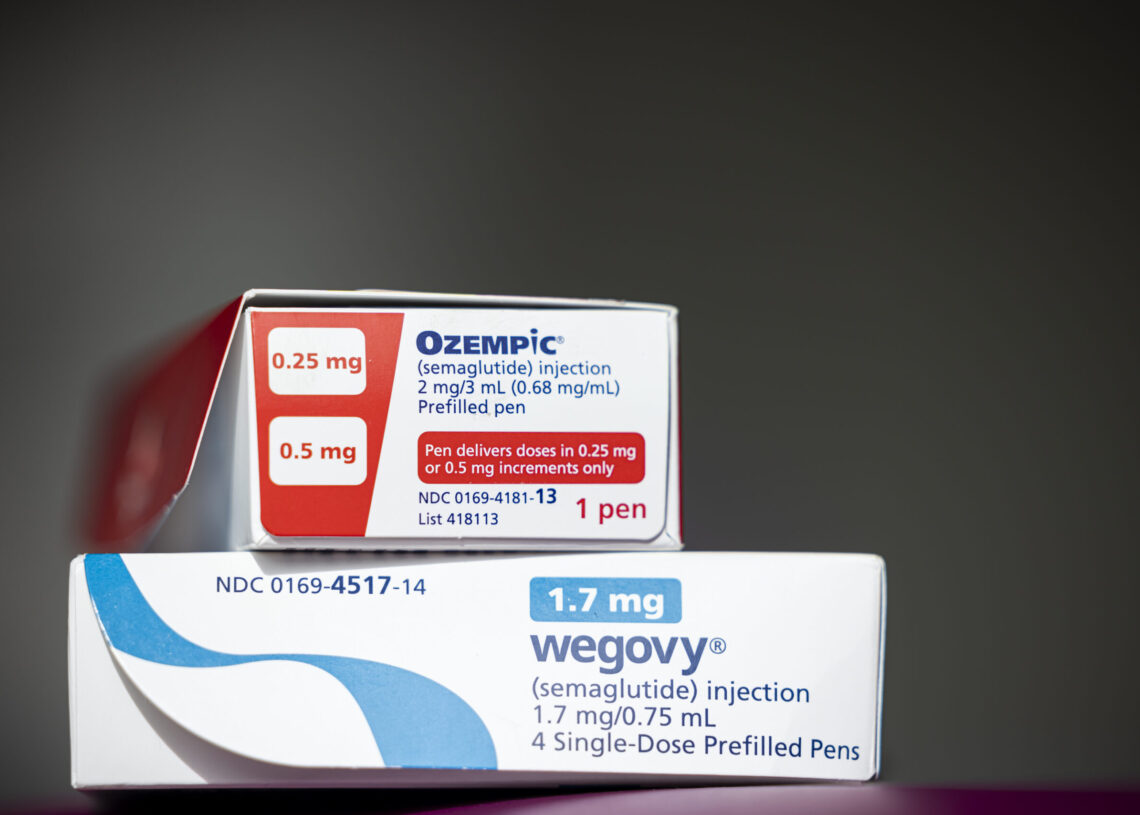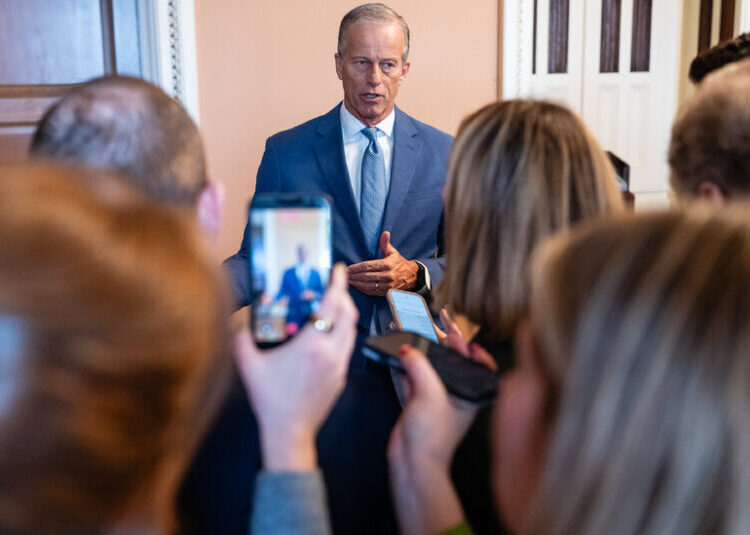
You’re reading The Checkup With Dr. Wen, a newsletter on how to navigate medical and public health challenges. Click here to get the full newsletter in your inbox, including answers to reader questions and a summary of new scientific research.
This week, I wrote about GLP-1 medicines, the blockbuster drugs including semaglutide and tirzepatide initially developed for diabetes and now approved for obesity and several other chronic conditions. One in eight Americans have already tried them, and their reach is only growing as new uses are added and more people become aware of their effectiveness.
You’re reading The Checkup With Dr. Wen, a newsletter on how to navigate medical and public health challenges. Click here to get the full newsletter in your inbox, including answers to reader questions and a summary of new scientific research.
This week, I wrote about GLP-1 medicines, the blockbuster drugs including semaglutide and tirzepatide initially developed for diabetes and now approved for obesity and several other chronic conditions. One in eight Americans have already tried them, and their reach is only growing as new uses are added and more people become aware of their effectiveness.
Here are five key questions I’ll be tracking in the months ahead:
1. Should coming off the medications be a goal?
If you ask the drugmakers, the answer is no. Cynics would say that’s because they have a clear financial interest in people using them for as long as possible. But the companies also have a point: Obesity is a chronic disease, and many chronic conditions, such as hypertension and heart disease, require lifelong medication.
That said, some people’s blood pressure and heart ailments improve to the point that drugs can be reduced or stopped, so why shouldn’t the same be true of obesity? Many patients are already using GLP-1s in ways that diverge from what’s technically approved by the Food and Drug Administration. Some lower the dose because of nausea, stomach cramps or other side effects. Others can’t afford the full regimen and space doses from weekly to every other week. And some reach their goal weight and pause the medication to see if they can maintain it through diet and exercise alone.
“Nobody wants to stay on a preventive treatment for life,” Steven D. Pearson, a physician and bioethicist, told me. It’s understandable why patients will try going off the drug to see what happens; if the weight creeps back, they can always restart it.
Britain’s National Health Service is taking that approach deliberately. It is covering GLP-1s for a maximum of two years, during which patients and their clinicians seek ways to maintain the weight loss after stopping.
“We’re all waiting with bated breath to see if this actually works,” Pearson said. In the meantime, I hope researchers will study patients already experimenting with weaning off these medications. Their experiences could help guide others who don’t want to — or can’t afford to — stay on them indefinitely.
2. Which patients benefit, and which don’t?
In clinical trials, GLP-1s have been remarkably effective, with many participants shedding 50 pounds or more. But about 10 to 15 percent lose little to no weight at all. And while most people can tolerate the side effects, others find them so bothersome that they stop treatment after just a few weeks.
Daniel Drucker, a Canadian endocrinologist and one of the pioneers behind GLP-1 research, told me there is “tremendous” variability in how people respond to these drugs. Right now, there’s no test to predict in advance who will respond well and who won’t. “It’s just trial and error,” he said.
It would be a major step forward if researchers could identify biological or genetic markers that predict response so that patients can take a test and know which medication, at what dose, will most likely work for them. But we are not quite there yet.
3. Will oral medications be a game changer?
A new GLP-1 drug is making headlines: orforglipron, an oral medication from the same manufacturer as tirzepatide. In a Phase 3 randomized controlled trial, participants who took the once-daily pill lost about 11 percent of their body weight over 72 weeks. In another recent study, oral semaglutide, which is already approved for diabetes, led to more than a 13 percent reduction.
Those results are somewhat less dramatic than injectable GLP-1s have achieved, but they are still impressive. Convenience matters: I expect far more people are comfortable with taking a pill than injecting themselves. Oral formulations also open the door to more “off-label” experimentation, including “microdosing,” in which people take smaller or less frequent doses than recommended.
The FDA could approve these oral GLP-1s as early as the end of this year. Once approved, they could reshape the market. More competition could drive prices down across the board, making these treatments more accessible to millions who might benefit.
4. Is muscle loss out of proportion to weight loss, and can it be mitigated?
GLP-1s are generally considered safe, but one of the more concerning long-term effects is the loss of lean muscle mass. Some studies also suggest an associated reduction in bone density, which can be especially problematic for older adults who are already at higher risk for falls and fractures.
It’s well known that rapid weight loss can cause muscle loss. What’s not yet clear is whether the loss is disproportionate with GLP-1 use. Could these drugs trigger a specific biological effect on muscle and bone? And crucially, can these consequences be reduced or reversed?
Amy Killen, a physician who focuses on longevity and regenerative medicine, told me she won’t prescribe GLP-1s unless patients commit to resistance training. “I think it’s very important that they do at least three days a week of resistance training like weightlifting,” she said. She also pairs this with nutrition coaching to ensure adequate protein intake. Whether those steps are enough remains to be seen, but they may be the best tools available for now.
5. Are the drugs’ anti-inflammatory effects independent of weight loss?
Laboratory and animal studies suggest that GLP-1s might influence inflammatory pathways, which has prompted a plethora of clinical trials to test whether these drugs alone or combined with other therapies could help treat autoimmune and neurodegenerative diseases in which inflammation plays a role.
Killen told me that she has seen patients with dramatic reductions in inflammation, even with little or no weight loss. Drucker, too, has heard anecdotal reports of people with rheumatoid arthritis or long covid who have experienced anti-inflammatory benefits independent of weight loss.
“I have no reason to doubt any of these people,” he said, “But the question is, if you did a clinical trial and you studied a hundred people, would you get two people like this, or would you get 45? If it’s two, it’s not a drug; if it’s 45, it could be the exciting new therapy.” But we just don’t know yet.
Many of these potential uses might be overhyped, but they deserve further research. Dozens of studies are now testing these claims. Scientists, clinicians and policymakers should weigh negative findings as carefully as positive ones so that objective results, not anecdotes or influencer buzz, guide clinical care.
Have you used GLP-1s to treat diabetes, obesity or other conditions? What questions or comments do you have? Please write to me. I will feature reader voices in a future column or The Checkup newsletter.
The post Five key questions about GLP-1 weight loss medicines
appeared first on Washington Post.




